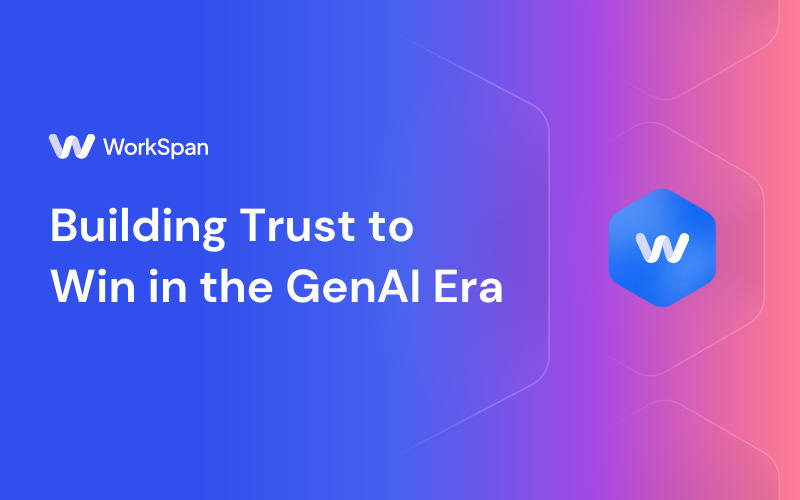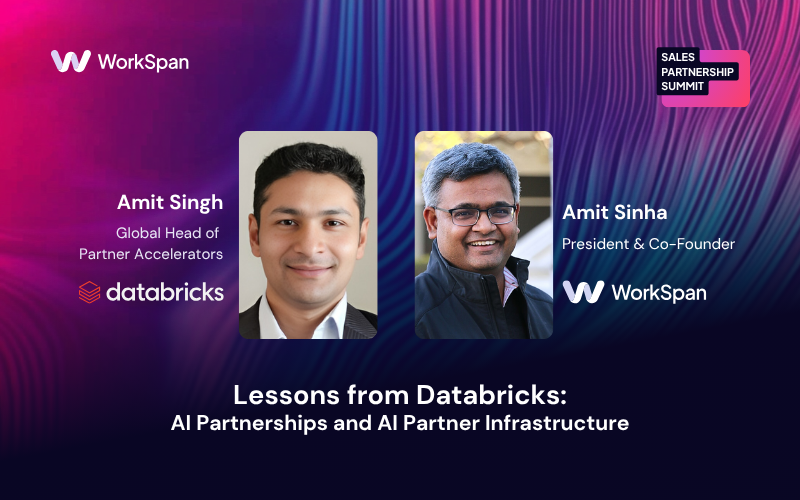
GenAI is transforming our industry, and companies are racing to find their GenAI edge—but it’s not about getting an AI solution to market first..
We’ve all heard the horror stories of GenAI implementations gone awry: hallucinations from customer service chatbots, LLMS proving attorneys with non-existent court cases, and AI algorithms applying major biases regarding age, gender, and race in the world of recruiting and healthcare.
Everyone who’s had their hands on the tech can imagine GenAI’s potential to transform society for the better, but we're simultaneously seeing the consequences of improper guardrails and controls. Breakdowns in expertise, partner promises, and solution implementations will erode trust between partners and, ultimately, with the end customer.
Trust has always been currency in the market.
Brand trust, customer & supplier relationships, and your reputation for delivering what you say you will are the foundations of a successful and durable business- how is GenAI changing the dynamics of trust in the market?
With real concerns around LLMs and data security, privacy, and biases, the long term winners will be the ones that can earn the trust of their GenAI partners and buyers.
The New GenAI Stack

We’d reached equilibrium with the traditional solution stack. ISVs build software applications atop cloud infrastructure, which GSIs then implement and integrate for the end customer. All partners work together in creating a complete solution and earning trust with the buyer throughout the co-sell and delivery process.
Now, consider how GenAI changes the stack.

The GenAI stack is deeper, and the dependencies between the layers are complex and nuanced.
Within the GenAI layer, LLMs and retrieval technologies can reliably process and analyze massive amounts of enterprise data, unlocking more insightful, collaborative, and secure solutions amongst partners. But, a foundational language model often needs specific context—proper fine-tuning or retrieval assisted generation (RAG)—to meet expectations in specific domains.
This is a new paradigm for interfacing with software, and it’s hard for people to trust probabilistic solutions. Both in working with partners to build solutions, and in the longer buying cycles customers need to trust mission critical use cases to the new technology, enterprises need the technical talent to see how the pieces fit together, and partner leaders that can build trust across complex relationships.
The Need for GenAI Ecosystems
So, with the importance of building trust, who in the market is positioned to reap the benefits of the GenAI boom?
Companies that have already built an ecosystem-first approach to the market have the talent and organizational maturity to create both partner and buyer trust at scale.
Companies which have invested in their ISV, cloud, and GSI partnerships are better positioned to win the race to bring GenAI to market. And the companies running full speed have a strong preference to work with partners that can match their speed.
Vinod Devan, Global Head of Partnerships and Business Development at Cohere described leveraging partners for greater efficiency by stating, “We place a high priority on those who are already in the space, and therefore can join us in the space, as opposed to us figuring it all out from scratch.”
Companies like Datastax, which had already partnered closely with their cloud partners, were ready to ride the GenAI wave when it came, leveraging their integration with cloud marketplaces and close co-selling relationships with cloud sales teams.
“Gen AI has caused a spike in our business,” said Harry Ault, EVP Corporate Development and Partnerships at Datastax. “The volume of transactions that we have are going up so significantly, and our strategy is becoming more marketplace-first, partner-led.”
Instead of spending time and resources building specialized solutions internally, companies can focus on their strengths and leverage the expertise of partners. ISVs can handle the necessary fine-tuning of their GenAI tools, and GSIs can present the buyer with POCs tailored to their specific needs and data sets. GTM is a race, but it’s a marathon, not a sprint. Leaders taking the long view should prioritize strategic partnerships and trusted customer outcomes.
Jessica Kosmowski, Global Ecosystems & Alliances Leader at Deloitte, put it best.
“In today's world, it's not about this being transactional. It's about this being transformational, and transformational means you need to bring many players together.”
Jessica Kosmowski, Global Ecosystems & Alliances Leader, Deloitte
The winners in GenAI will be the companies that develop both the technical competencies and the GTM muscle to build trust at scale, leveraging their cloud hyperscalers, SVIs, and GSI relationships.
Moving Forward Together
We’re at a juncture with GenAI. Not just with our products, partnerships, and businesses- people close to the tech see the stakes for our lives, our relationships, and society. The way the technology shapes the world is going to be defined by the partnerships that deliver GenAI to the market.
This is a critical moment for partnership leaders.
“When you think about your partner programs, technical know-how is more important than ever,” said Colleen Kapase, VP Channels and Partner Programs at Google. “Understanding the art of what’s possible is more important than ever before, because things are more possible than we've ever frankly dreamed of.”
And these partnerships also serve as springboards for innovation. From stock image libraries and news publications to health centers, companies are partnering to create foundational AI models to revolutionize their offerings. With GenAI, the possibilities for innovation are as wide as the partnership ecosystem.
This is a call to the entire ecosystem community to step up and embrace GenAI.
We can actively shape a more sophisticated, more innovative, and more trustworthy marketplace that yields greater results for all.
Let's build trust amongst each other to maximize the utility of GenAI, and let's rise to the occasion as partnership leaders.
Heading
Heading 1
Heading 2
Heading 3
Heading 4
Heading 5
Heading 6
Lorem ipsum dolor sit amet, consectetur adipiscing elit, sed do eiusmod tempor incididunt ut labore et dolore magna aliqua. Ut enim ad minim veniam, quis nostrud exercitation ullamco laboris nisi ut aliquip ex ea commodo consequat. Duis aute irure dolor in reprehenderit in voluptate velit esse cillum dolore eu fugiat nulla pariatur.
Block quote
Ordered list
- Item 1
- Item 2
- Item 3
Unordered list
- Item A
- Item B
- Item C
Bold text
Emphasis
Superscript
Subscript





.png)